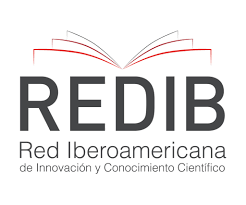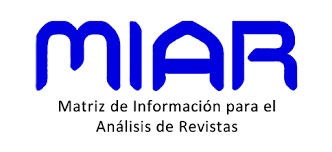Deconstructing the technocratic paradigm. Anthropological implications and educational keys from the thought of pope Francis, Guardini and Heidegger
DOI:
https://doi.org/10.51743/cpe.333Keywords:
technique, technocratic paradigm, power, progress, Pope Francis, R. Guardini, M. HeideggerAbstract
Transhumanism, big data, robotization, digitalization, social networks, biotechnology are phenomena that demonstrate the immense power of technology and its ambivalence, since it both serves to improve people’s quality of life and can turn against man himself, causing environmental problems, injustices, exploitation and
inequality. As the cause of these problems, Pope Francis points to the “technocratic paradigm” a dominant way of thinking that considers progress for progress’s sake as an end in itself and the key to solving social problems and deploys technology as a tool of possession and dominion considering nature and man himself as exploitation material. This work aims to conceptualize this paradigm and highlight its dominant and absolute character; analyze its development in the pontifical magisterium until Francisco showing its continuity; derive its anthropological implications in dialogue with authors such as R. Guardini and M. Heidegger, highlighting how it modifies the value of the person, how it reduces reason to mathematical reason, closing knowledge to other fields of knowledge, how it replaces the ethical criteria of goodness and justice for those of utility and efficiency and how it breaks the balance of man’s relationships with God, with himself, with others and with nature. Finally, relying on personalist authors, it offers some educational keys to change the paradigm, since it is necessary to decode it to teach today’s man to master the power of technology and put it at the service of the person and the common good.
Downloads
References
Bellver, V. (2017). Contra el paradigma tecnocrático: la posición del Papa Francisco. Argumentos de Razón Técnica, 20, 149-169.
Benedicto XVI (29 de junio, 2009). Carta encíclica Caritas in Veritate. Vatican.va. https://www.vatican.va/content/benedict-xvi/es/encyclicals/documents/hf_ben-xvi_enc_20090629_caritas-in-veritate.html
Benedicto XVI ( 22 de septiembre, 2011). Discurso en la visita al parlamento federal, en el viaje apostólico a Alemania del 22 al 25 de septiembre de 2011. Vatican.va. http://www.vatican.va/content/benedict-xvi/es/speeches/2011/september/documents/hf_ben-xvi_spe_20110922_reichstag-berlin.html
Borghesi, M. (2017). Jorge Mario Bergoglio. Una biografia intellettuale, Jaca Book.
Briola, L. (2020). Praise rather than solving problems: understanding the doxological turn of Laudato Si’ through Lonergan. Theological Studies 81, 693-716.
Concilio Vaticano II (7 de diciembre, 1965), Constitución Pastoral Gaudium et Spes sobre la Iglesia en el mundo actual. Vatican.va. https://www.vatican.va/archive/hist_councils/ii_vatican_council/documents/vat-ii_const_19651207_gaudium-et-spes_sp.html
Francisco (2015), Carta encíclica Laudato Si’ sobre el cuidado de la casa común. Vatican.va. https://www.vatican.va/content/francesco/es/encyclicals/documents/papa-francesco_20150524_enciclica-laudato-si.html
Gomes, R. (2021). Technology: creativity and power. An ethical-social reflection in the light of Laudato Si’. Revista de Cultura Teológica, 98, 176-198. https://doi.org/10.23925/rct.i98.52394 https://revistas.pucsp.br/index.php/culturateo/article/view/52394/pdf
Guardini, R. (1981). El ocaso de la era moderna. En R. Guardini, Obras de Romano Guardini I (29-169). Ediciones Cristiandad.
Guardini, R. (1981). El poder una interpretación teológica. En R. Guardini, Obras de Romano Guardini I (165-260). Ediciones Cristiandad.
Guardini, R. (1981). Europa: Realidad y tarea. En R. Guardini, Obras de Romano Guardini I (165-260). Ediciones Cristiandad.
Hacking, I. (2012). Introductory Essay. En Kuhn, T. The structure of scientific revolutions (vii-xxxviii). University of Chicago Press
Heidegger, M. (1997). Filosofía, ciencia y técnica. Editorial Universitaria.
Juan Pablo II (14 de septiembre, 1981). Carta Encíclica Laborem Exercens. Vatican.va. https://www.vatican.va/content/john-paul-ii/es/encyclicals/documents/hf_jp-ii_enc_14091981_laborem-exercens.html
Juan Pablo II (30 de diciembre, 1987). Carta encíclica Sollecitudo Rei Socialis. Vatican.va. https://www.vatican.va/content/john-paul-ii/es/encyclicals/documents/hf_jp-ii_enc_30121987_sollicitudo-rei-socialis.html
Juan Pablo II (1 de mayo, 1991). Carta encíclica Centessimus Annus. Vatican.va. https://www.vatican.va/content/john-paul-ii/es/encyclicals/documents/hf_jp-ii_enc_01051991_centesimus-annus.html
Kuhn, T. (1962). The structure of scientific revolutions. University of Chicago Press.
Pablo VI (26 de marzo, 1967). Carta encíclica Populorum Progressio. Vatican.va. https://www.vatican.va/content/paul-vi/es/encyclicals/documents/hf_p-vi_enc_26031967_populorum.html
Pablo VI (14 de mayo, 1971), Carta apostólica Octogesima Adveniens. Vatican.va. https://www.vatican.va/content/paul-vi/es/apost_letters/documents/hf_p-vi_apl_19710514_octogesima-adveniens.html
Piguem, J. (2018). Ángeles o robots. La interioridad humana en la sociedad hipertecnológica. Fragmenta Editorial.
Ratzinger, J. y Jiménez M.(trad) (2005). Las bases prepolíticas del Estado liberal. Revista de pensamiento contemporáneo, 18, 75-91. https://roderic.uv.es/handle/10550/46153
Ratzinger, J. (2005). Creación y pecado. Eunsa.
Ratzinger, J. (2007). Introducción al cristianismo. Sígueme.
Remolina, G. (2020). Crítica al paradigma tecnocrático desde la perspectiva cultural. Pensamientos a propósito del capítulo III de la encíclica Laudato Si’. En AA.VV, Documentos para el cuidado de la casa común (6-20). Editorial Pontificia Universidad Javierana.
Downloads
Published
How to Cite
Issue
Section
License
The author reserves the rights (copyright) of the published works, and the journal encourages and allows their reuse, from the preprint. The works are published in the electronic edition of the journal under a license "Creative Commons Attribution / Attribution-NonCommercial 4.0 International Public License - CC BY-NC 4.0", and can be copied, used, disseminated, transmitted and publicly exhibited.
The author / s partially transfer the property rights (copyright) of this work for the printed and online editions, provided that:
- The authorship and original source of its publication (magazine, publisher and URL of the work) is cited.
- Are not used for commercial purposes.
- The existence and specifications of this user license are mentioned.
It also declares to have respected the ethical principles of research and to be free from any conflict of interest.
"C.P.E." encourages the authors and the scientific community to the maximum promotion and dissemination of the works in their final version through:
1) Your list of contacts (emails) and social networks (Facebook, Twitter, LinkedIn ...).
2) Institutional repository of your University and public repositories (Mendeley, Cosis ...).
3) Scientific social networks (ResearchGate, Academia.edu, Kudos ...).
4) Personal or institutional website, blog, etc.
5) Google Scholar, ORCID, ResearchID, ScopusID, Dimensions, PlumX ...
6) Printed copies purchased directly and sent to specialists for reading and subsequent citation if appropriate.




















1.png)
1.png)

1.png)





.png)
.png)

.png)
1.png)
1.png)
